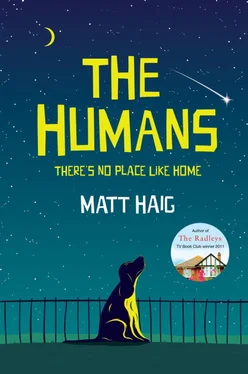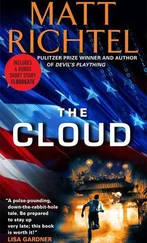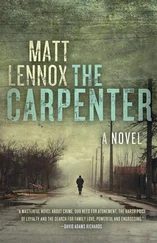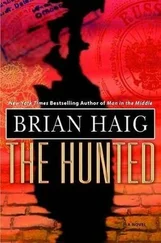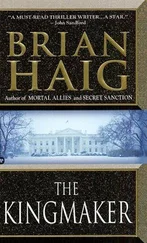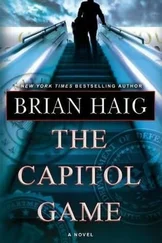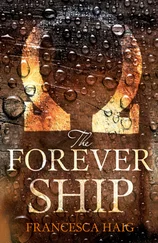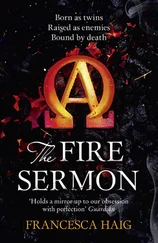‘Everyone is very worried about you.’
‘Who?’ I said.
‘Well, your son, for a start. Gulliver’s got even worse since this.’
‘We only have one child?’
Her eyelids descended slowly, her face was a tableau of forced calm. ‘You know we do. And I really don’t understand how you left without a brain scan.’
‘They decided I didn’t need one. It was quite easy.’
I tried to eat a bit of the food she had placed by the side of the bed. Something called a cheese sandwich. Another thing humans had to thank cows for. It was bad, but edible.
‘Why did you make me this?’ I asked.
‘I’m looking after you,’ she said.
A moment’s confusion. It was slow to compute. But then I realised, where we were used to service technology humans had each other.
‘But what is in it for you?’
She laughed. ‘That question’s been a constant our whole marriage.’
‘Why?’ I said. ‘Has our marriage been a bad one?’
She took a deep breath, as if the question were something she had to swim under. ‘Just eat your sandwich, Andrew.’
I ate my sandwich. Then I thought of something else.
‘Is that normal? To have just one. Child, I mean.’
‘It’s about the only thing that is, right now.’
She scratched a little bit at her hand. Just a tiny bit, but it still made me think of that woman, Zoë, at the mental hospital, with the scars on her arms and the violent boyfriends and the head full of philosophy.
There was a long silence. I was accustomed to silence, having lived alone most of my life, but somehow this silence was a different kind. It was the kind you needed to break.
‘Thank you,’ I said. ‘For the sandwich. I liked it. The bread, anyway.’
I didn’t honestly know why I said this, as I hadn’t enjoyed the sandwich. And yet, it was the first time in my life I had thanked anyone for anything.
She smiled. ‘Don’t get used to it, Emperor.’
And then she patted her hand on my chest, and rested it there. I noticed a shift in her eyebrows, and an extra crease arrive in her forehead.
‘That’s odd,’ she said.
‘What?’
‘Your heart. It feels irregular. And like it’s hardly beating.’
She took her hand away. Stared at her husband for a moment as if he were a stranger. Which of course he was. I was. Stranger, indeed, than she could ever know. She looked worried, too, and there was a part of me that resented it, even as I knew fear – of all the emotions – was precisely what she should have been feeling at that moment in time.
‘I have to go to the supermarket,’ she told me. ‘We’ve got nothing in. Everything has gone off.’
‘Right,’ I said, wondering if I should allow this to happen. I supposed I had to. There was a special sequence to follow and the start of that sequence was at Fitzwilliam College, in Professor Andrew Martin’s office. If Isobel left the house, then I could leave the house too, without prompting any suspicion.
‘All right,’ I said.
‘But remember, you’ve got to stay in bed. Okay? Just stay in bed and watch television.’
‘Yes,’ I said. ‘That is what I will do. I will stay in bed and watch television.’
She nodded, but her forehead remained creased. She left the room, and then she left the house. I got out of bed and stubbed my toe on the doorframe. It hurt. That wasn’t weird in itself, I suppose. The weird thing was, it stayed hurting. Not a severe pain. I had only stubbed my toe, after all – but it was a pain which wasn’t being fixed. Or not until I walked out of the room and on to the landing, then it faded and disappeared with suspicious speed. Puzzled I walked back into the bedroom. The pain increased the closer I got to the television, where a woman was talking about the weather, making predictions. I switched the television off and the ache in the toe immediately disappeared. Strange. The signals must have interfered with the gifts, the technology I had inside my left hand.
I left the room, vowing in times of crisis never to be anywhere near a television.
I went downstairs. There were lots of rooms here. In the kitchen, there was a creature sleeping in a basket. It had four legs and its body was entirely covered with brown-and-white hair. This was a dog. A male. He stayed lying there with his eyes closed but growled when I entered the room.
I was looking for a computer but there was no computer in the kitchen. I went into another room, a square room at the back of the house which I would soon learn was the ‘sitting room’, though most human rooms were sitting rooms if the truth be told. There was a computer here, and a radio. I switched the radio on first. A man was talking about the films of another man called Werner Herzog. I punched the wall and my fist hurt, but when I switched off the radio it stopped hurting. Not just televisions, then.
The computer was primitive. It had the words ‘MacBook Pro’ on it, and a keypad full of letters and numbers, and a lot of arrows pointing in every possible direction. It seemed like a metaphor for human existence.
A minute or so later and I was accessing it, searching emails and documents, finding nothing on the Riemann hypothesis. I accessed the Internet – the prime source for information here. News of what Professor Andrew Martin had proved was nowhere to be found, though details of how to get to Fitzwilliam College were easy to access.
Memorising them, I took the largest batch of keys on the chest in the hallway and then left the house.
Most mathematicians would trade their soul with Mephistopheles for a proof of the Riemann hypothesis.
– Marcus du Sautoy
The woman on the television had told me there would be no rain so I rode Professor Andrew Martin’s bicycle to Fitzwilliam College. It was evening now. Isobel would be at the supermarket already, so I knew I didn’t have long.
It was a Sunday. Apparently this meant the college would be quiet, but I knew I had to be careful. I knew where to go, and although riding a bicycle was a relatively easy thing to do, I was still a bit confused by the laws of the roads and narrowly escaped accidents a couple of times.
Eventually, I made it to a long, quiet tree-lined street called Storey’s Way, and the college itself. I leant my bike against a wall and walked towards the main entrance of this, the largest of the three buildings. This was a wide, relatively modern example of Earth’s architecture, three storeys high. As I was entering the building I passed a woman with a bucket and a mop, cleaning the wooden floor.
‘Hello,’ she said. She seemed to recognise me, though it wasn’t a recognition that made her happy.
I smiled. (I had discovered, at the hospital, that smiling was the appropriate first response on greeting someone. Saliva had little to do with it.) ‘Hello. I’m a professor here. Professor Andrew Martin. I know this sounds terribly strange but I have suffered a little accident – nothing major, but enough to cause me some short-term memory loss. Anyway, the point is I am off work for a little while but I really need something in the office. My office. Something of purely personal value. Is there any chance you know where my office is?’
She studied me for a couple of seconds. ‘I hope it wasn’t anything serious,’ she said, though it didn’t sound like the sincerest of hopes.
‘No. No, it wasn’t. I fell off my bike. Anyway, I’m sorry, but I am a little bit pressed for time.’
‘Upstairs, along the corridor. Second door on the left.’
‘Thank you.’
I passed someone on the stairs. A grey-haired woman, astute-looking by human standards, with glasses hanging around her neck.
Читать дальше
